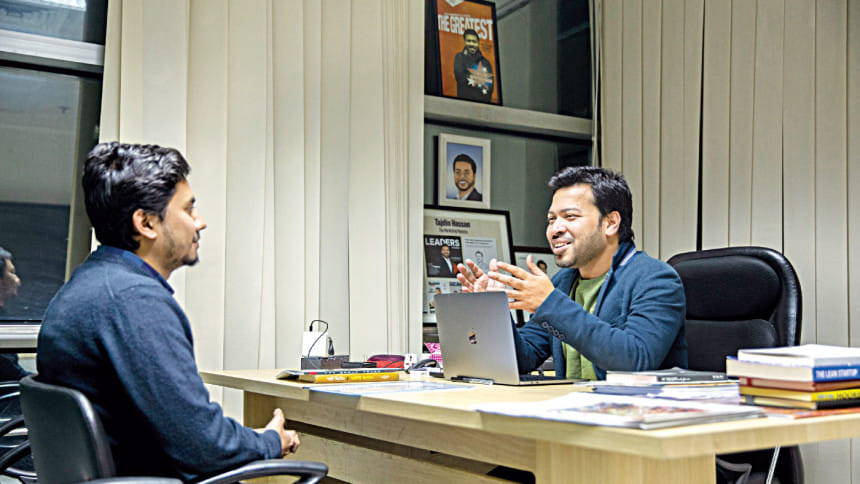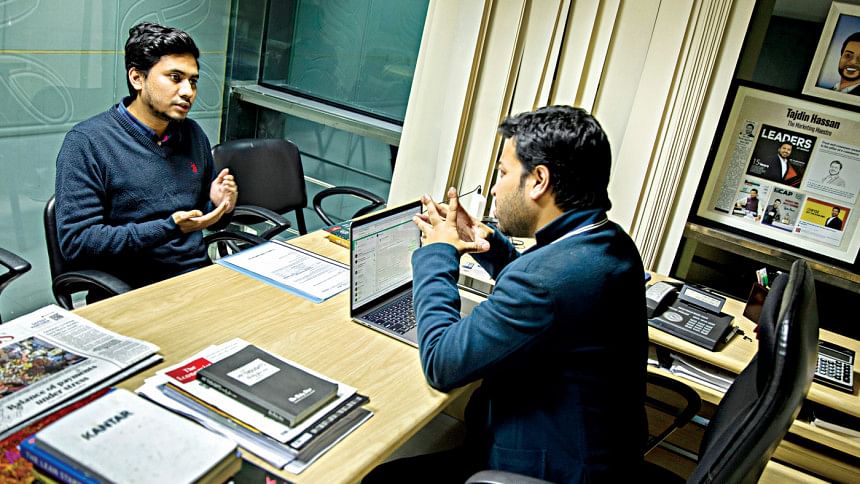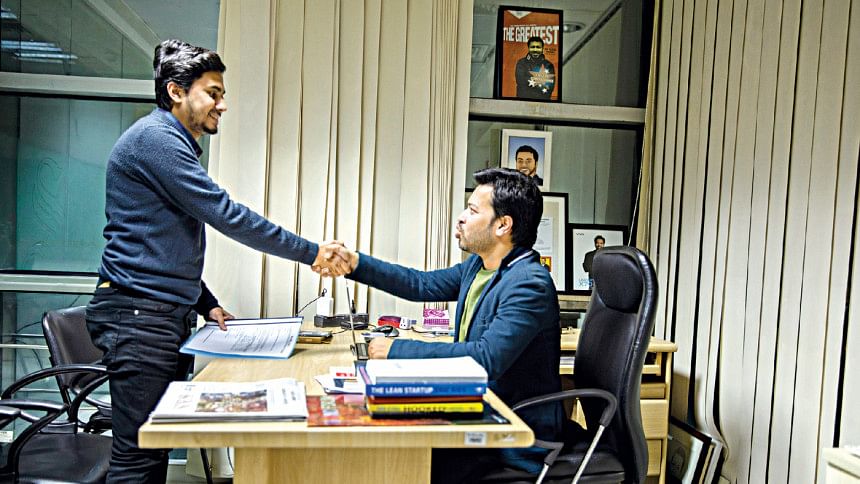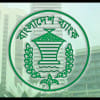The job market for fresh university graduates

The job market in any field has always been competitive. For fresh university graduates who, in most cases, might lack work experience, finding employment becomes more challenging. While it is true that COVID-19 has changed the job making in introducing hybrid workplaces, increase in online businesses and such, the market still remains flooded with unemployed fresh graduates with inadequate employment opportunities.
Md Jamal Uddin, Director of Career Services of University of Liberal Arts Bangladesh (ULAB), has been working for nearly a decade in aiding students to prepare for the job market after they graduate. He sheds light on the situation, saying—
"The market before and after COVID-19 are two different worlds. During the pandemic, there were some companies which merged or some which shut down. They faced challenges in generating revenue. Eventually most companies, instead of creating more employment opportunities, had to shrink down their workforce. However, the number of graduates still increased and they are unable to secure jobs". He further says that with adequate preparation, students can find jobs and that there are jobs available in the market but students are not prepared for it. There is a gap between the industry and academia, and this gap has been there from the beginning.
A final-year student from a renowned public university currently majoring in Development Studies feels this gap, and says, "My university prepared me in terms of theories, approaches, and fulfilled the academic requirements. However, the real world is difficult. The sector is changing, and funds are decreasing. It is all about networking which is not part of the curriculum. There is no internal recruitment for undergraduate students. No alumni mixers or any way to introduce students to recruiters who would help us understand what recruiters are looking for and work towards that."

As a female, she further struggles with keeping up with the job market coming from a conservative family and other added societal pressure. Additionally, the intense curriculum leaves barely enough time for students to properly explore their goals and ambitions.
"The department not only fails to prepare students but makes them lethargic and pulls them into a trap of chasing grades. The teachers are biased and it is really demoralising," she states.
So, who is responsible for bridging this gap?
Md Jamal Uddin thoroughly believes that it is the responsibility of academic institutions to do so by introducing opportunities for students to interact with corporate leaders and other individuals who are experienced in approaching the job market.
Md Jamal Uddin says, "The curriculum cannot solve everything. Academia is responsible to bridge this gap; by being innovative, to provide supplementary activities within the campus to prepare students. The fast-changing corporate world should be introduced at university levels from the get-go but in different capacities.
He goes on to elaborate that universities should have additional departments like career services, student affairs, psychosocial services, etc. to fulfil this, as students need access to these services. Some universities like ULAB are working to reduce this gap. Corporate leaders are invited for various speeches and workshops where they share their experience with students. By doing so, it gives students more insight into how the corporate world works and what it is looking for in new recruitments.
An English major from ULAB says, "The university faculties have always helped us to get a clear view on our career choices. We have been prepared in the teaching field as well."
Md Jamal Uddin argues that the necessity of having liberal arts in universities, as it would allow students to diversify their knowledge and skill set, opening the door to more career opportunities. However, despite such efforts, our English major is still worried, saying, "I fear unemployment. I could not take a job while doing my final semester because the work time was not flexible. I am done with my courses and I am looking for a job now. I am worried about the salary, the work environment, and the pressure."
Another English major who recently graduated from a well-known private university argues that her university curriculum taught them the necessary essentials needed to easily pursue a postgraduate education. She sheds light on her experiences, stating, "The job market available for English majors is not the best in Bangladesh. For a degree like mine, it is extremely rare to secure a well-paying job without acquiring a master's degree. I am worried about employment. There are a lot of fresh graduates every year, but very few job opportunities are available. It's honestly very competitive out there after graduation."
On the flip side, an Economics and General Business graduate says that their private university curriculum was not enough in covering the basic essentials, which in turn, has not prepared them to approach the job market or the corporate world.
"I interned at a corporate office for a while and the experience was terrible. I could not make sense of what I was doing or what was being asked of me. Eventually, I opted to work as a waiter at a coffee shop so that I could at least financially support myself. But that made my grades fall," he states.

Whatever the job, Md Jamal Uddin encourages students to take the opportunity regardless of the pay, to begin developing their skills as grades are not the only thing recruiters look for. However, it is important for students to begin preparing for the corporate market early during their first year through club activities, event participation, voluntary and service work etc. It is through these extracurricular activities that students would be able to harness employability and interpersonal skills which are heavily valued nowadays.
"These interactions allow students to write something in their resumes during their final year. Remember, the corporate world is looking for a candidate who has a combination of skills, not just a good CGPA," Md Jamal Uddin explains.
Taking up such job opportunities also allows students to integrate into the corporate world and develop a disciplined lifestyle which segments itself as work, study, and socialisation. In that way, when students do find a job after graduation, they are able to adapt easily to the environment and work culture.
Students who only focused on academics tend to be at a loss on what jobs to opt for during their final year. In this case, Md Jamal Uddin advises students to take their time to research their interest, identify their goals and ambitions, and then proceed to identifying the skills they need to achieve their goal.
He criticises the current situation in Bangladesh and encourages a more diversified education system where students have the option to branch out in their field and proceed to expanding their horizons during higher studies.
"Firstly, in our country, we do not have a culture of multiple internships. Secondly, we have internship projects as part of the curriculum. But after that, many students fail to find a job. So, you have to go out there and look for whatever opportunities you can seize. Go to good companies and get as much information as you can, build your network, at least work towards an internship even if it does not live up to your expectations. All the while, job searching should be your full-time job," he states.
The job market is undoubtedly a challenging arena for university students, and it awaits them after graduation. During this journey, planning and executing is crucial. Starting from getting a job to keep yourself from getting lethargic, to getting on social media platforms to build your portfolio and social presence, to keeping track of each resume and how it needs to be catered to the specific job — these steps gradually make students more familiar with the corporate world and allow for them to mentally prepare for the challenge which awaits them. It might be easy to get lost in the hype of starting university but it is also important to start preparing for the real world.
Photo: Sazzad Ibne Sayed
Model: Tajdin Hassan and Masum al Rifat

 For all latest news, follow The Daily Star's Google News channel.
For all latest news, follow The Daily Star's Google News channel. 








Comments